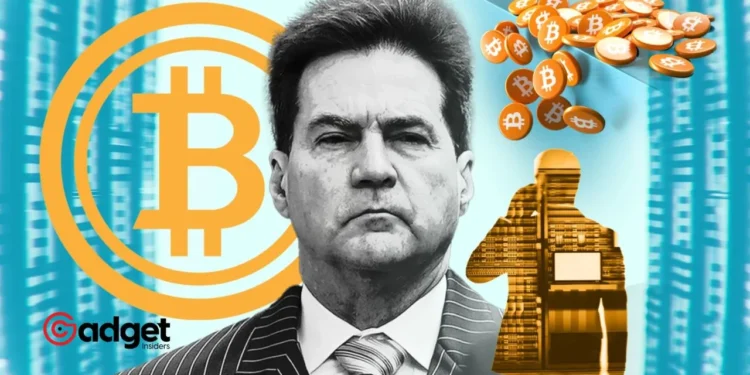In a landmark decision that has sent shockwaves through the cryptocurrency world, a UK judge has finally put to rest the long-standing mystery surrounding the true identity of Bitcoin’s creator, Satoshi Nakamoto. The ruling not only demystifies one of the digital age’s most persistent enigmas but also marks a significant moment in the ongoing debate over intellectual property rights and freedom of expression within the burgeoning tech industry.

The Man Who Claimed to Be Satoshi
Dr Craig Wright, an Australian computer scientist, found himself at the center of an explosive legal and media maelstrom when he publicly claimed to be the elusive Nakamoto, the pseudonymous figure behind the creation of Bitcoin. Wright’s assertion was not taken lightly; it sparked a fervent and divisive debate across the cryptocurrency community and beyond.
The controversy culminated in a six-week trial in London, where Wright faced off against the Crypto Open Patent Alliance (COPA), a collective aimed at preventing him from further asserting his claim through litigation based on what they alleged were fraudulent claims.
The heart of the trial revolved around Wright’s assertion of intellectual property rights tied to Bitcoin’s creation—a claim that, if proven, could have had profound implications for the future of cryptocurrency.

A Surprise Ruling
Justice James Mellor’s verdict was nothing short of groundbreaking. With clear conviction, Mellor stated, “Dr. Wright is not the author of the Bitcoin white paper. Dr. Wright is not the person who operated under the pseudonym Satoshi Nakamoto.
Dr. Wright is not the person who created the Bitcoin system. Nor is Dr. Wright the author of the Bitcoin software.” This unequivocal dismissal of Wright’s claims came as a surprise to many, effectively ending years of speculation and legal wrangling.
The judge’s words reverberated through the halls of the Royal Courts of Justice and across the digital world, as prominent figures and platforms like Jack Dorsey of Twitter fame publicly acknowledged the ruling’s significance.
NfinityLabs News 🗞️
Craig Wright is not Satoshi Nakamoto, nor the author of the Bitcoin whitepaper👨⚖️
At least, that's the judge's verdict after finding that the evidence was "overwhelming" against Wright. pic.twitter.com/ugaRLtb6AE
— Nfinity Labs (@NfinityLabs) March 14, 2024
Bitcoin: The Fallout and the Future
The implications of Mellor’s ruling are far-reaching. Beyond the immediate halting of Wright’s lawsuits against major cryptocurrency platforms like Coinbase and influential figures such as Jack Dorsey, the verdict serves as a potent reminder of the complexities surrounding identity, ownership, and truth in the digital era.
COPA’s victory is seen not just as a win for the defendants in this case but as a triumph for the open-source community, developers, and indeed, the very ethos of truth and transparency that underpins the cryptocurrency movement.
The alliance’s spokesperson summed up the sentiment, stating, “This decision is a win for developers, for the entire open-source community, and for the truth.”

Yet, the story does not end here. COPA has called for Wright’s alleged forgeries to be scrutinized by UK criminal courts, potentially leading to further legal consequences for Wright.
This move underscores the seriousness with which the allegations of fraud and deception are being treated, highlighting the legal system’s role in safeguarding the integrity of technological innovation and intellectual property.
As the dust settles on this landmark case, the cryptocurrency community and the broader tech world are left to reflect on the lessons learned. The saga of Craig Wright and the quest to uncover the true identity of Satoshi Nakamoto has underscored the importance of credibility, transparency, and integrity in the ever-evolving digital landscape.
As Bitcoin continues to pave the way for the future of finance, this ruling reaffirms the foundational principles that have made cryptocurrency a revolutionary force in the first place.










